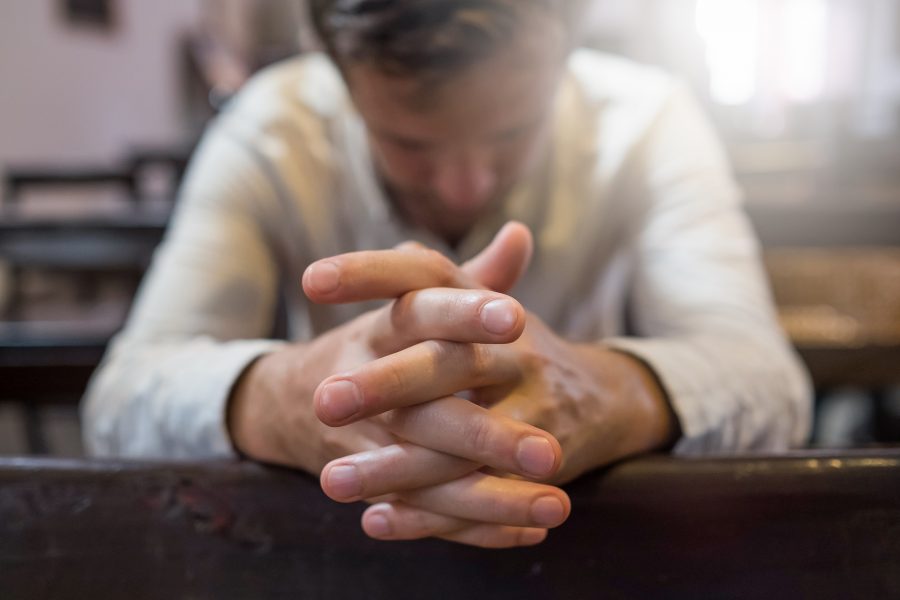
Why Gratitude?
When did you last express or feel gratitude? When was the last time you had a sense, a deep understanding, that everything is going to be okay? Usually when we have this kind of peace about what is happening in our lives, it is under largely favorable circumstances. Our finances are going in the right direction, our careers are on an upward trajectory, our kids are flourishing. Under these circumstances it is difficult to feel sad, angry or hopeless. These are the things that comprise a life of joy and gratitude. These are the things that make us fulfilled.
Is this the way of life though? Can we truly expect that everything will simply continue on in such a life affirming manner? What do we do when one of these wonderful aspects of our lives diminishes, fades or, perish the thought, completely disintegrates? What if more than one or even all of these favorable circumstances are removed from our experience. What if they are replaced by unfavorable circumstances, even dramatically difficult and painful ones? What then of gratitude…what then of joy? How quickly we fade, along with our hopes and dreams, when those very hopes and dreams collapse around us! One can often perceive how someone’s current situation is going simply based on the joy that they exude, or the anger and bitterness that they express in their words or actions. It is difficult to convey gloom and sadness when we find ourselves in happy circumstances. Alternately, it can be tremendously difficult to express joy and gratitude in times of lack, want and desperation. The first thing that I think we should come to understand is that joy and gratitude or anger and bitterness are not simply expressions in and of themselves. Those outward expressions are more likely to be reflective of what lies in the heart and soul.
I’m sure we can all recollect or think of someone in our present who displays peace, joy and gratitude no matter their situation. I can personally think of several such people with ease. All of us can certainly think, again with relative ease, of someone in our past or present who exudes negative energy no matter the circumstance they may find themselves in, good or bad. There is always something to complain about somehow. What do these opposing responses reveal about the state of our hearts? I suppose that they are truly representative of our humanity. None of us are able to remain indefinitely untouched by the negative, nor are we left without concrete and visible sources of joy and gratitude. An exercise in self searching is important on a variety of levels, the most important being testing where our hearts and minds are for most of the time. If we have a tendency to complain or to display ingratitude on a fairly regular basis, that may be a warning sign that we are not finding serenity, which a true deep-down trust in God will certainly bring about.
The truth of this life is of course that bad things will happen to us. Our lives will encounter trials and difficulties that are beyond our futile attempts to control. There will be times when we come to realize that there truly is nothing we can do to better our circumstances, that life appears to be as difficult as it could possibly get. There will be times when we cry out to God, arguing “enough is enough”, because we recognize that we cannot go any deeper, simply can’t go through any more, and then we do. The circumstance does not stop or right itself. God seemingly doesn’t change the situation for the better on our behalf and things just get worse. What is our typical response to this? Do we shake our fist at the sky? Been there. Do we shout out “God…where are you???” Done that. I think that can be entirely natural and understandable by others as well as by God. That type of reaction to deep-down guttural pain and crushing sadness is not necessarily indicative of ingratitude. However, we should be cautious about allowing the pain and sadness to develop into hopelessness and ongoing frustration. In my own life, I’ve experienced periods of intense weeping and crying out my frustrations to the Lord, followed shortly thereafter by moments of beautiful worship, with the recognition of God’s greatness and unmerited love for me and for those who I care about, as well as to those who choose to perhaps declare themselves my enemies. This is where gratitude begins.
Gratitude is the sense of deep thankfulness for what God has done, for who He is, for who we are in His eyes. Also for what we believe He is doing. Gratitude is not merely a thank you for the good stuff that we have received, are receiving or will receive, but rather is a response to that which is finished. God’s love for us has been manifested in the fact that He gives us breath, and has revealed Himself to us by His word and His Holy Spirit. In particular, He shows His love by including us in His family, due to his sacrifice on the cross. If we are focused on the eternity that is already but not yet revealed in and to us, then we will be grateful, no matter our current feelings. Feelings truly are just feelings. While they may be a response to truth around us, they are not truth in and of themselves, and they certainly are not indicative of ultimate truth. I don’t believe that our emotions, words or actions can adequately demonstrate the depth of gratitude that we should be trying to express because of what God in Jesus has done for us, and does through us! There are only two options in this life once it comes to the end of this earthly existence…eternal life or eternal death. Gratitude for God’s intervention in offering us the way to avoid the second option and fully embrace and enjoy the first should come to us as a primary way of living if we genuinely believe this to be truth! This does not in any way nullify the reality of the hurt and pain that we encounter at various times in our lives. Even as I’m writing this piece, feeling a depth of gratitude to God for His gracious gifts, I’m living in a deep sense of loss as well, due to some very trying circumstances that just will not seem to come to a conclusion. We truly can exemplify and live in an attitude of gratitude while wiping tears from our overflowing eyes! It may seem a conundrum, but it isn’t. God is good…God loves us beyond our ability to understand, no matter what is going on around us. As a matter of fact, Jesus weeps with us!
As recorded in John 11:33-35, following the death of Lazarus, “When Jesus saw [Mary] weeping, and the Jews who had come with her also weeping, he was deeply moved in his spirit and greatly troubled. And he said ‘Where have you laid him?’ They said to him, ‘Lord come and see.’ Jesus wept.” Why did Jesus weep? Was it because his friend Lazarus was now dead? Was it because he knew that he would never see Lazarus in this life? No! He wept for those who were weeping, for Lazarus’ sister Mary, for the Jews who had accompanied her to the tomb. He felt their pain. This did not nullify what he was about to do in raising Lazarus from the dead, thereby eliminating the further need for weeping. He felt deep sorrow for those who were grieving. Luke 19:41-42 relates, “And when he drew near and saw [Jerusalem], he wept over it, saying, ‘Would that you, even you, had known on this day the things that make for peace! But now they are hidden from your eyes.’” In this case, Jesus weeps over the city of Jerusalem, and I’m sure all the people of Israel by extension. Why? He was weeping over them because of what they had done to bring great hardship upon themselves, not for what they were about to do to him. What a love he has for us!
Gratitude is not always easy on a surface level; however, if we are to truly trust in God’s love, provision and salvation, then we should lean heavily into the arms of Christ, and be enormously grateful for all that he is to us and in us. Gratitude through the joyful times. Gratitude through the everyday. Gratitude in the worst of times. Gratitude all the time!
